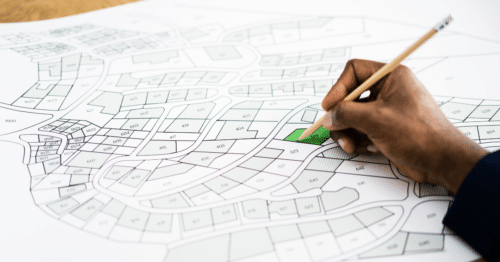As cities grow and evolve, so too must the infrastructure and technology that support them. In the UK, the rise of smart cities is shaping the future of urban development by blending advanced technology with sustainable planning. But what exactly is a smart city, and how is it changing urban planning across the country? With increasing emphasis on urban planning regulations and the need for building regulations approval, planners must adapt to this new trend. Let’s explore the concept, the driving technologies, and how urban planning in the UK is evolving to embrace these advancements.

A smart city uses technology to improve the efficiency of urban services, reduce resource consumption, and enhance the quality of life for residents. This is achieved through the integration of data and technology into urban infrastructure, such as transport and energy systems. Using sensors, the Internet of Things (IoT), and big data, smart cities can monitor and manage resources more effectively, making them more responsive to the needs of their populations.
However, it’s not just about technology for technology’s sake – smart cities focus on creating sustainable, liveable environments. They aim to reduce congestion, lower emissions, and improve public services while fostering economic growth and innovation.
Urban planning in the UK has always balanced historical preservation with modernisation. With the rise of smart cities, technology now plays a fundamental role in how urban spaces are designed and managed. Planners are using data-driven approaches to make decisions that once relied on estimations. Today, technology helps cities adapt in real-time to population growth, climate change, and public demand.
For example, in cities like London and Manchester, intelligent transport systems reduce congestion by monitoring road usage and adjusting traffic signals. Smart lighting that dims when no one is present is another common innovation, cutting energy consumption. In addition, smart city initiatives must align with urban planning regulations, requiring building regulations approval to ensure compliance with current standards.
Moreover, as the UK works to meet its carbon reduction goals, integrating renewable energy sources and smart grids into urban planning is crucial. This will help cities cope with increasing populations and resource pressures in the coming decades.

Several key technologies drive the development of smart cities:
Urban planners in the UK now need to think beyond traditional methods and consider how technology can be integrated into city design. Smart infrastructure, such as roads, buildings, and public transport, must be adaptable to future technological advancements. This often requires structural engineering expertise to ensure developments can support new technologies.
Innovative architectural design also plays a crucial role in creating flexible, forward-thinking urban spaces. Planners must design cities that can evolve over time while remaining resilient to future demands.
Moreover, inclusivity is a key consideration in smart city planning. As cities become smarter, it’s essential that all residents have access to the benefits of new technology. Urban planning must ensure technology enhances equality rather than widening the socioeconomic gap. In densely populated areas, party wall surveying may be necessary to ensure that new developments respect existing structures and comply with legal requirements.

The UK is embracing the concept of smart cities, and it’s clear that technology will play an increasingly significant role in shaping urban environments. The integration of data-driven decision-making, sustainable energy solutions, and intelligent infrastructure is driving cities towards a future that is not only smarter but also more resilient.
For urban planners, the challenge lies in balancing the potential of new technologies with the practical needs of city residents. Collaboration between technologists, policymakers, and communities will be crucial to building cities that meet today’s demands and anticipate future needs.
In conclusion, smart cities are no longer a distant concept – they are rapidly becoming a reality across the UK. By integrating technology into urban planning, cities are evolving into more efficient, sustainable, and liveable spaces. As this trend continues, urban planners will play a pivotal role in ensuring that the cities of the future are smart, inclusive, and adaptable.